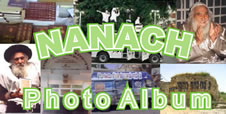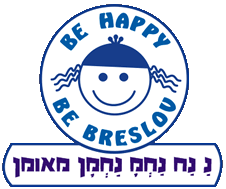The Parable of Yahudosa ben Qardun Translated by Professor Avraham Chaim Na Nach The history of Yahudosa ben Qardun is preserved in an anonymous collection of obscure midrashim on the Tanach. He lived in the First Temple period, but all other details are unknown. The Philistines were once again strengthened,and were threatening the Israelites with the support of the Egyptians and Edomites. The Children of Israel were tired of war and caught in the snare of avoda zara, which was accompanied by promiscuity and a love for money. But at the same time there was peace, or so it seemed, except for the occasional border clashes. No one wanted to speak out against the weakening of the peoples' faith and the danger that was posed by the growing power of Israel's enemies. The King and his advisors advocated a policy of peace and conciliation to the Philistines and their allies. The people who had fallen into avoda zara praised the King for his policies for it gave them greater opportunity to build relationships for trade, intermarriage and idolatry. The sages of this time were content as well. They were given large stipends from the King and awarded great honor in the eyes of the people. And though it was a direct violation of the words of the Torah, they did not protest when the King entered into a treaty with the Philistines. They justified this to themselves saying, “Why should I speak if no one will listen to me?” “Now is not the time.” “If I speak out, I will be killed, and my people need me.” The King declared a time of peace and in his speeches he said:“Shalom is the name of God, and there is no greater vessel for blessing than peace.” The sages nodded in agreement and the people were pleased. And so the idolatry continued to spread amongst the people...and the danger from abroad grew. At this time there lived a young man named Yahudosa ben Qardun. Yahudosa lived far from the city and its politics. He was a student of the prophets and lived with his small circle of students serving Hashem with prayer, meditation and fasting. He was a humble, young man and despite his great learning made himself appear simple to those around him. One night after a long period of seclusion and fasting, Yahudosa awoke in his cave. He heard a motion and thought someone was stealing from his sacks. It was dark so he lit a lamp but saw nothing. He then rose for his midnight prayers. Before dawn he went to his sack to put on his tallit and tefilin. He picked up his tallit and as he unfolded it a piece of parchment fell out. He was surprised because he did not leave this parchment with his things. He picked up the parchment and written upon it was the phrase “David Melek Israel, Chai V'Qyam” and some other letters that seemed to be secret names of angels. “Where did this come from? Did someone enter my cave last night and put this into my tallit sack? But who? I am here all alone and no one knows where I am? Was it an angel?” Yahudosa looked at the parchment and wondered what it could mean. He read it over and over again and contemplated each of the Hebrew letters in the secret name, and then suddenly a song entered his heart and he began to sing and to dance. In these words he received a prophetic vision of the redemption and the revelation of God's presence. His entire body was filled with inexplicable joy like he had never felt in his life. He began to laugh out loud. He danced and danced until past sundown and into the night. He returned back to his village and to his fellow students and friends. He wanted to tell them what had happened but he knew that they would not believe him. “Yahudosa received a parchment from an angel? God was doing miracles for him? How ridiculous!” They would think he was crazy. And anyway, how could he even communicate the vision that he was given. He meditated upon this and concluded that there was no way to speak of these things. The only thing he could do was sing these words and share his happiness and pray that this prophecy would be communicated. And so he did. He went about his days singing and dancing and laughing with joy: “David Melek Israel, Chai V'Qyam”!! As he continued to sing this song his joy continually increased. People enjoyed it at first but they they began to laugh and make fun of him. They said that he had spent too much time in a cave and had gone mad. This did not bother Yahudosa and he continued to share his song and his joy and laughter with the children and young people who loved him. He saw that the adults were more concerned about their honor and their money, and were not free in their soul like the children and young people to be joyful. He explained to his community that Moshe Our Teacher taught that we must serve God with joy, and that this was the best protection against all harm and would bring us favor in the the eyes of God. Some understood and began to sing his song and follow in his ways. The King and his advisors began to fear the song. They saw it as a threat to their policies. “Yahudosa is inciting the people against the King and his policies of peace. He is arousing them to the violent ways of war in the name of David ben Yishai.” And so the King and his advisors plotted to kill Yahudosa. They made several attempts but each time they failed. One time they sent their assassin out and he killed another man in the village name Yahudosa, and this caused a great uproar. It seemed that Yahudosa was indeed protected by angels and they began to fear him. Yahudosa did not fear them at all, and he spoke out directly against the King's policies and the sages that supported him. “The King is a servant of God and he must be given his proper honor. But when his policies go against the Holy Torah of Hashem, we cannot sit quiet. The sages are cowards, concerned only about their honor and money, and our people have fallen into the pit of idolatry. These are simple words of truth. We must not fear any man, only God Himself.” The sages did not sit by idly but attacked Yahudosa in return calling him a madman and a fool. “Is Yahudosa a sage or a dyan? Is he a son of kings or sages? He is nobody, Who is he but a simple, villiage fool who thinks himself a prophet? And what is his prophecy? The song and dance of a clown for children. He is not to be taken seriously.” Yahudosa did not care. He continued to sing and to dance and to laugh, and he continued to speak the truth. The children and youth listened and they received the light of his prophecy. They knew in their hearts that he was defending the Torah and the Will of God. The young people were not fooled by images of money and honor. They were pure and they loved truth. The King and the sages could call Yahudosa was a fool and a false prophet, but they knew better. These children grew to become adults and understood that the true prophet is one who stands up for truth, especially when an entire generation is silent. In the time of darkness the true prophet carries the torch of the Torah and its light of joy and purity. Yahudosa passed away but his song was sung louder and louder and it eventually awakened the people of Israel to their mission to serve Hashem, smash the idols of idolatry and defend themselves against their enemies. Na Nach Nachma Nachman m'Uman! |
|






